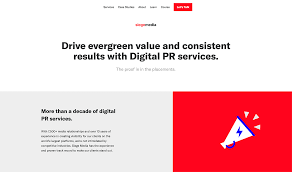Enhancing Business Success Through Effective Brand Reputation Monitoring
The Importance of Brand Reputation Monitoring
In today’s digital age, brand reputation monitoring has become a crucial aspect of any business strategy. With the rise of social media and online review platforms, a company’s reputation can be easily influenced by what is being said about them online. It is essential for businesses to actively monitor and manage their brand reputation to ensure long-term success.
Brand reputation monitoring involves tracking and analysing what customers, competitors, and the general public are saying about a brand online. This includes monitoring social media channels, review websites, forums, news articles, and other online platforms where discussions about the brand may occur.
By regularly monitoring brand mentions and feedback, businesses can gain valuable insights into how their brand is perceived by the public. Positive feedback can help reinforce a company’s image and attract new customers, while negative feedback can provide an opportunity to address issues and improve customer satisfaction.
Effective brand reputation monitoring allows businesses to proactively manage potential crises before they escalate. By identifying negative sentiment early on, companies can take swift action to address concerns and prevent reputational damage.
Furthermore, brand reputation monitoring can help businesses stay ahead of competitors by identifying trends in consumer preferences and sentiment. By analysing feedback and engagement metrics, companies can adapt their strategies to better meet customer expectations and differentiate themselves in the market.
In conclusion, brand reputation monitoring is an essential practice for any business looking to maintain a positive image in the eyes of consumers. By actively listening to feedback, addressing issues promptly, and leveraging insights to enhance their offerings, companies can build trust with their audience and secure long-term success.
Understanding and Managing Brand Reputation: Key Questions and Answers
- How do I monitor brand reputation online?
- What is brand reputation monitoring?
- How do you manage brand reputation?
- What KPI is used to measure brand reputation?
- How do you monitor reputation?
- What is brand monitoring?
- How do you analyze brand reputation?
How do I monitor brand reputation online?
Monitoring brand reputation online involves using a combination of tools and strategies to track what is being said about your brand across various online platforms. To monitor brand reputation effectively, businesses can utilise social media monitoring tools, online review platforms, Google Alerts, and specialised brand monitoring services. By setting up alerts for brand mentions, regularly checking social media channels, analysing customer feedback, and engaging with online conversations, companies can gain valuable insights into how their brand is perceived and take proactive steps to manage their reputation effectively.
What is brand reputation monitoring?
Brand reputation monitoring is the practice of actively tracking and analysing what is being said about a brand online. It involves monitoring various channels such as social media, review websites, forums, news articles, and other online platforms to understand how the brand is perceived by customers, competitors, and the general public. By keeping a close eye on brand mentions and feedback, businesses can gain valuable insights into their reputation, identify potential issues or opportunities, and take proactive steps to manage their image effectively. Brand reputation monitoring helps companies stay informed about public sentiment towards their brand and allows them to make informed decisions to protect and enhance their reputation in the long run.
How do you manage brand reputation?
Managing brand reputation involves a strategic approach that encompasses various key elements. To effectively manage brand reputation, businesses should start by actively monitoring online mentions and feedback across different platforms. This includes social media channels, review websites, forums, and news articles. Responding promptly to both positive and negative feedback is crucial in demonstrating transparency and a commitment to customer satisfaction. Engaging with customers, addressing concerns, and resolving issues in a timely manner can help build trust and loyalty. Additionally, consistently delivering on brand promises, maintaining high-quality products or services, and communicating transparently with stakeholders are essential aspects of managing brand reputation effectively. Regularly evaluating feedback, analysing trends, and adapting strategies accordingly are also vital for maintaining a positive brand image in the eyes of consumers.
What KPI is used to measure brand reputation?
One commonly used Key Performance Indicator (KPI) to measure brand reputation is the Net Promoter Score (NPS). The NPS is a metric that assesses customer loyalty and satisfaction by asking customers a simple question: “On a scale of 0 to 10, how likely are you to recommend our brand to others?” Based on their responses, customers are categorised as Promoters (score 9-10), Passives (score 7-8), or Detractors (score 0-6). The NPS is calculated by subtracting the percentage of Detractors from the percentage of Promoters. A high NPS indicates strong brand advocacy and positive reputation, while a low NPS may signal areas for improvement in brand perception and customer satisfaction.
How do you monitor reputation?
Monitoring reputation involves a systematic approach to tracking and analysing what is being said about a brand across various online platforms. To monitor reputation effectively, businesses can use a combination of tools such as social media monitoring software, online review trackers, Google Alerts, and sentiment analysis tools. By setting up alerts for brand mentions, monitoring customer feedback on review sites, and analysing social media conversations, companies can gain valuable insights into how their brand is perceived by the public. Regularly reviewing and responding to feedback allows businesses to proactively manage their reputation and address any issues that may arise swiftly.
What is brand monitoring?
Brand monitoring, also known as brand reputation monitoring, is the practice of tracking and analysing online conversations, mentions, and feedback related to a specific brand. It involves monitoring various online platforms such as social media, review websites, forums, news articles, and blogs to understand how a brand is perceived by its audience. By actively listening to what customers, competitors, and the general public are saying about a brand online, businesses can gain valuable insights into their reputation and make informed decisions to enhance their image. Brand monitoring helps companies stay proactive in managing their reputation, addressing issues promptly, and maintaining a positive relationship with their target audience.
How do you analyze brand reputation?
Analyzing brand reputation involves a comprehensive approach that encompasses monitoring various online channels and feedback mechanisms to gain insights into how a brand is perceived by its audience. It typically includes tracking social media mentions, online reviews, customer feedback, and media coverage to gauge sentiment and identify trends. By using tools such as sentiment analysis, keyword tracking, and competitive benchmarking, businesses can assess the overall perception of their brand and pinpoint areas for improvement. Effective brand reputation analysis enables companies to make data-driven decisions, address issues proactively, and enhance their overall reputation in the eyes of consumers.







